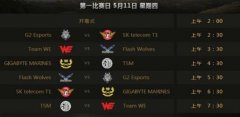time是什么意思?
time的意思是时间。英 [taɪm] 美 [taɪm] n. 时间;时代;时期;倍;次数;节拍v. 为...…安排时间;计时;[体]在某一时刻击球adj. 时间的;定时的;分期(付款)的;定期的例句:Reading occupies most of my free time.翻译:阅读占去了我大部分的闲暇时间。短语:in time 及时,按时,适时反义词space 英 [speɪs] 美 [speɪs] n. 空间;处所;太空;空地;空闲;空格;间隙v. 留间隔;分隔;走神;忘记例句:There is plenty of space to move about.翻译:这里有很大的活动空间。短语:block up a space 堵塞场地
at the time和by the time区别.
"At the time"和"by the time"是两个时间短语,都与时间有关,但是它们在语义上有所不同。在英语中,时间短语的使用非常重要,因为不同的时间短语可能会给人带来不同的信息。下面我们就来探讨一下这两个时间短语的区别以及使用方法。
"At the time"指的是某一时刻的具体时间,常常与动词的过去式搭配使用。例如,“I was watching TV at the time the phone rang.”这里的“at the time”指的是当电话响的具体时间。这个时间点可以在过去的某个时间,也可以是现在或未来的某个时间。"At the time"可以表示具体的时间点,但是并不一定意味着这个时间点是一个关键的时间节点。它只是指某个具体的时间点。
"By the time"指的是在某个时间点之前,某个动作已经完成。例如,“By the time I got to the party, everyone had already left.”这里的“by the time”指的是在我到达派对之前,所有人都已经离开了。"By the time"经常与完成时态搭配使用。它通常表示在某个时间之前完成的事情,这个时间通常是一个关键的时间点。因此,这个时间点通常与时间序列相关。
在实际的应用中,"at the time"和"by the time"的区别非常明显,但它们也可以混淆,因此在使用它们时需要注意。通常,"at the time"指的是一个具体的时间点,而"by the time"指的是某个动作在某个关键时间点之前完成。在句子中,我们通常会使用其他的语言线索来帮助读者确定使用哪一个时间短语。
例如,如果我们想表达“当我到达机场时,飞机已经起飞了”,我们可以使用"by the time",即“By the time I arrived at the airport, the plane had already taken off.”这里的"by the time"指的是在某个关键的时间点之前,飞机已经起飞了。另一方面,如果我们想表达“当我在机场等候时,飞机突然起飞了”,我们可以使用"at the time",即“At the time I was waiting at the airport, the plane suddenly took off.”这里的"at the time"指的是具体的时间点,即飞机起飞的那个时刻。
总之,“at the time”和“by the time”在语义上有所不同,前者表示具体的时间点,而后者表示在某个关键时间点之前完成的动作。在使用时需要注意语言环境和语境。正确地使用这些时间短语可以使我们的语言更加准确和流畅。
by the time是什么意思?
by the time的用法如下:1、如果从句中的谓语动词是一般过去时,那么主句中的谓语动词通常用过去完成时,表示“截止到从句动作发生时,主句动作已经完成,即过去的过去”。2、如果主句动作不强调已经完成,只是说明某个时候的状况,(主句是be的系表形式或者是表示像know, find, believe等表示认知的持续性动词,则往往用一般时态,不用完成时态。)此时主句用完成时,而应根据实际需要选用适当的时态,此时by the time相当于when。例句1、By the time this gets into print, they'll already have left the country. 这篇东西发表的时候,他们将已经离开这个国家了。2、By the time I was vice chancellor, the Senate had become a much larger and a much more democratic body. 到我做副校长的那个时候,大学评议会已经成为一个更大、更民主的机构了。3、Most of the workers had already rung in by the time I arrived. 我到的时候,大多数工人都已签到了。
time和since的用法有什么区别呢?
"it is time since"从句和"it has been time since"从句最主要的区别在于,前者强调的是当前时刻已经到达了某个时间点,而后者强调的是自过去某个时间点以来已经过去了一段时间。
具体来说,"it is time since"通常用于表示某个事件或行动应该在过去的某个时间点完成,例如:
- It is time since we last saw each other. (自我们上次见面以来已经很长时间了。)
在这个例子中,"it is time since"表明现在已经到了一个应该再次见面的时间点。
而"it has been time since"则通常用于描述从过去某个时间点到现在的时间长度,例如:
- It has been three years since I graduated from college. (我大学毕业已经三年了。)
在这个例子中,"it has been time since"强调的是从毕业时间算起已经过去了三年的时间长度。
总之,这两种表达方式虽然语法形式类似,但是含义和使用场景不同,需要根据具体情况进行选择。
感谢细心地讲解,那in the time、at the time、on the time、on time分别什么意思,该怎么用呢?
1、on time表示准时,按时。指按规定的时刻,不早不晚。强调“准时,正点”。例如:To our astonishment, they arrived on time.使我们惊讶的是,他们准时到了。2、at the time是指在某个时间点。3、on the time没有这种用法,只有on time是准时的意思。4、in the time没有这种用法,只有in time是及时,迟早的意思。time的用法time除了能作名词,表示“时间、时刻、次数、倍数”外,还能作及物动词使用,表示“安排好时间、为(比赛或选手)计时”。例如:He timed his journey so that he could arrive at the hotel before dark .他安排好了他的旅程,以便能在天黑以前到达旅馆。句型:1、It’s time for sth .或It’s time ( for sb ) to do sth .意为:该是……的时候了。例如:It’s time for dinner.该是吃晚餐的时候了。2、It’s ( high ) time ( that ) sb did sth .意为:该是……的时候了。该句型中的that从句需要用虚拟语气,谓语动词常用过去式。例如:It’s high time that we stated.我们该出发了。
the first time 引导的时间状语从句有时态限制吗?
the first time 引导的时间状语从句是有时态限制的。1、the first time 后面可以跟过去式,表示对过去的事情描述是第一次做某事:例句:The first time I saw him.I knew he was the one.第一次见到他,我就知道他是我命中注定的那个人。2、后面还可以跟一般现在时,对现在事情进行描述:例句:It is the first time she sees the snow falling.这是她第一次看到下雪。3、也可以跟完成时例句:It is the first time since 1976 that an asteroid has come so close to Earth,and the first time astronomers have ever had this much advance notice.这是自1976年以来第一次有小行星如此近距离接近地球,也是天文学家首次提前如此长的时间得到确切消息。This is not the first time we have suffered.这不是我们第一次受到这种罪了。扩展资料例句:1、Streams had run dry for the first time in memory. 记忆中,小溪第一次干涸了。2、It was the first time we admitted to ourselves that we were tired. 这是我们第一次承认自己累了。3、It was the first time I had put it all down on paper. I found it helped. 这是我第一次把所有的东西都写在纸上,我觉得这有帮助。4、I remember the first time I went onstage. I freaked out completely.我还记得自己第一次登台的情形。我完全吓坏了。5、This is the first time she has experienced disappointment.这是她第一次感受到失望。
by the time 引导从句主句用什么时态
通常是各种完成时态,包括将来完成时。
by the time 1)到…时候为止; 2)…当……的时候;
by the time 1)到…时候为止
通常引导一个时间状语从句,表示“到……的时候为止”主句则表示在此时间之前某个事件已完成。值得注意的是,当从句用过去时时,主句通常用过去完成时。【摘要】
by the time 引导从句主句用什么时态【提问】
很高兴回答你的问题,正在整理有关的信息,耐心等待。【回答】
通常是各种完成时态,包括将来完成时。
by the time 1)到…时候为止; 2)…当……的时候;
by the time 1)到…时候为止
通常引导一个时间状语从句,表示“到……的时候为止”主句则表示在此时间之前某个事件已完成。值得注意的是,当从句用过去时时,主句通常用过去完成时。【回答】
希望我的回答能帮到你【回答】
by the time的用法归纳是什么?
by the time的用法如下:1、如果从句中的谓语动词是一般过去时,那么主句中的谓语动词通常用过去完成时,表示“截止到从句动作发生时,主句动作已经完成,即过去的过去”。2、如果主句动作不强调已经完成,只是说明某个时候的状况,(主句是be的系表形式或者是表示像know, find, believe等表示认知的持续性动词,则往往用一般时态,不用完成时态。)此时主句用完成时,而应根据实际需要选用适当的时态,此时by the time相当于when。例句1、By the time this gets into print, they'll already have left the country. 这篇东西发表的时候,他们将已经离开这个国家了。2、By the time I was vice chancellor, the Senate had become a much larger and a much more democratic body. 到我做副校长的那个时候,大学评议会已经成为一个更大、更民主的机构了。3、Most of the workers had already rung in by the time I arrived. 我到的时候,大多数工人都已签到了。
by the time的用法时态是什么?
by the time的用法时态是:1、表示过去的动作:主句用had done+by the time+从句用一般过去时时态。We had already left by the time they arrived.那天他们到的时候,我们已经先走了。2、表示将来的时态:主句用will have done+by the time+从句用一般现在时态。We will have already left by the time they arrive.一会儿等他们来的时候,我们就将离开了。相关短语:By the time their rehabilitation 改过时间了by the time when 等到by the time of 到……的时候when by the time 介词By The Time Iarrived 在我到达之前
everytime和every time有什么区别?
every time和everytime的区别如下:意思不同every time的意思为任何时候,相当于一个副词。everytime的意思为每一次,是形容词。用法不同:every time一般放在句首,而everytime一般放在时间状语从句前面,用来引导时间状语从句。例句:1.Whenever I find something worth while, I shall remember to give it to you. (我找到有用的东西,一定记得给你。)2.Every time he comes, I'm in a bad mood. (他每次来,我都心情不好。)3.Every time you come, it's raining. (你每次来,都下雨。)4.Every time the light shines, I feel cheerful. (每次灯亮的时候,我都很开心。)
含有time的六个状语从句引导词
1. any time any time 的意思是“随时”“任何时候”,用作连词时,引导时间状语从句,表示“无论什么时候做某事”。如: You can come up and see me any time (that) you like. 你什么时候想来看我就来好了。 Any time you come to London do look me up. 你无论什么时候到伦敦来,一定要来看我。 Any time you want a babysitter, dear, you only have to ask. 亲爱的,你什么时候需要人帮忙照看孩子,只要开口说一声就行。 2. each time each time 的意思是“每次”,用作连词时,引导时间状语从句,表示“每次做某事的时候”。如: The colours gently fade each time you wash the shirt. 衬衣每洗一次都会褪点色。 They complimented me on the way I looked each time they saw me. 每次见到我,他们都称赞我的外貌。 Each time I returned I was struck by the uniqueness of Australia and its people. 每次返回,我都会惊讶于澳大利亚及其国民的与众不同。 3. every time every time 的意思是“每次”,与each time用法相同,用作连词时,也是引导时间状语从句,表示“每次做某事的时候”。如: You don’t have to go running upstairs every time she rings. 用不着她一来电话你就往楼上跑。 The child is afraid of dogs and cries every time one comes close by. 那孩子怕狗,每当有狗靠近他就哭。 Every time she travels on the bus it’s delayed by at least three hours. 每次她乘公车出行都至少耽搁3个小时。 4. the first time the first time 的意思是“第一次”,用作连词时,引导时间状语从句,表示“第一次做某事的'时候”。注意,the first time中的冠词不能省略。如: The first time I came here, I had the best night’s sleep for months. 我第一次来到这里就睡了数月来头一个晚上的好觉。 the company struck out the first time it tried to manufacture personal computers. 该公司初次尝试生产个人电脑时就失败了。 5. (the) last time (the) last time 的意思是“上次”,用作连词时,引导时间状语从句,表示“上次做某事的时候”。注意,the last time中的冠词可以省略。如: Last time I took my pulse, it was a bit fast. 我上次量脉搏的时候有点快。 The last time we moved house there were very few breakages. 我们上次搬家几乎没什么物品被破损。 6. (the) next time (the) next time 的意思是“下次”,用作连词时,引导时间状语从句,表示“下次做某事的时候”。注意,the last time中的冠词可以省略。如: Do look me up the next time you’re in London. 你下次到伦敦,务必来找我。 Next time you go shopping, throw in a few extra fruit and vegetables. 下次你去买东西,多买点水果蔬菜。 【边学边练】 1. Come and see us _______ that you’re in town. A. any time B. until C. so that D. even if 2. _______ I ask you to do something, you always say you’re too busy. A. Now that B. even though C. Each time D. In case 3. He felt nervous _______ she spoke to him. A. so that B. each time C. in case D. now that 4. You must present your library ticket _______ you borrow books. A. every time B. in case C. even if D. if only 5. They spoil their child by buying him a toy _______ they go shopping. A. even if B. now that C. so that D. every time 6. _______ I’ve found myself in a social situation with my boss, we seem to run out of conversation after two minutes! A. Ever since B. Soon after C. Every time D. In case 7. She was so attractive and he fell in love with her_______ that he met her. A. as long as B. now that C. the first time D. in order that 8. _______ we made a claim on our insurance they paid up really quickly. A. Last time B. In case C. Even if D. Now that 9. _______ I went to the pub with you, I ended up seriously out of pocket! A. In order that B. Even although C. The last time D. Ever since 10. Why don’t you drop in for a drink _______ you’re over this way? A. next time B. in case C. ever since D. so that 11. _______ you decide to take some action, kindly inform me.(www.hxen.com) A. Now that B. In case C. Next time D. If only 12. He goes through the whole performance of checking the oil and water _______ he drives the car. A. so that B. every time C. even though D. Since then 【参考答案】 1. A。句意为:不管什么时候你来城里,过来看我们吧。 2. C。句意为:我每次叫你做什么事,你都总说你太忙。 3. B。句意为:每次她和他讲话,他都感到紧张。 4. A。句意为:你每次借书都必须出示借书证。 5. D。句意为:他们每次外出购物都给他带一件玩具,这样把他宠坏了。 6. C。句意为:我发觉每次和上司在社交场合时,过两分钟我们就无话可说了! 7. C。句意为:她那么有魅力,他一见到她就爱上她了。 8. A。句意为:上次我们申领保险赔付的时候,他们给付得非常爽快。 9. C。句意为:上次我和你去酒店,我最后把钱都花光了。 10. A。句意为:你下次路过时进来喝一杯怎么样? 11. C。句意为:你下次再决定采取行动时,劳驾通知我一声。 12. B。句意为:他每次开汽车都总是不厌其烦地把油和水整个检查一遍。
含有time的六个状语从句引导词
含有time的六个状语从句引导词 导语:像any time, each time, the first time之类短语,表面上看好像是名词性质的短语,但实际上它们都可用作连词,用以引导状语从句。下面是我收集整理的含有time的六个状语从句引导词,希望对你有帮助! 1. any time any time 的意思是“随时”“任何时候”,用作连词时,引导时间状语从句,表示“无论什么时候做某事”。如: You can come up and see me any time (that) you like. 你什么时候想来看我就来好了。 Any time you come to London do look me up. 你无论什么时候到伦敦来,一定要来看我。 Any time you want a babysitter, dear, you only have to ask. 亲爱的,你什么时候需要人帮忙照看孩子,只要开口说一声就行。 2. each time each time 的意思是“每次”,用作连词时,引导时间状语从句,表示“每次做某事的`时候”。如: The colours gently fade each time you wash the shirt. 衬衣每洗一次都会褪点色。 They complimented me on the way I looked each time they saw me. 每次见到我,他们都称赞我的外貌。 Each time I returned I was struck by the uniqueness of Australia and its people. 每次返回,我都会惊讶于澳大利亚及其国民的与众不同。 3. every time every time 的意思是“每次”,与each time用法相同,用作连词时,也是引导时间状语从句,表示“每次做某事的时候”。如: You don’t have to go running upstairs every time she rings. 用不着她一来电话你就往楼上跑。 The child is afraid of dogs and cries every time one comes close by. 那孩子怕狗,每当有狗靠近他就哭。 Every time she travels on the bus it’s delayed by at least three hours. 每次她乘公车出行都至少耽搁3个小时。 4. the first time the first time 的意思是“第一次”,用作连词时,引导时间状语从句,表示“第一次做某事的时候”。注意,the first time中的冠词不能省略。如: The first time I came here, I had the best night’s sleep for months. 我第一次来到这里就睡了数月来头一个晚上的好觉。 the company struck out the first time it tried to manufacture personal computers. 该公司初次尝试生产个人电脑时就失败了。 5. (the) last time (the) last time 的意思是“上次”,用作连词时,引导时间状语从句,表示“上次做某事的时候”。注意,the last time中的冠词可以省略。如: Last time I took my pulse, it was a bit fast. 我上次量脉搏的时候有点快。 The last time we moved house there were very few breakages. 我们上次搬家几乎没什么物品被破损。 6. (the) next time (the) next time 的意思是“下次”,用作连词时,引导时间状语从句,表示“下次做某事的时候”。注意,the last time中的冠词可以省略。如: Do look me up the next time you’re in London. 你下次到伦敦,务必来找我。 Next time you go shopping, throw in a few extra fruit and vegetables. 下次你去买东西,多买点水果蔬菜。 【边学边练】 1. Come and see us _______ that you’re in town. A. any time B. until C. so that D. even if 2. _______ I ask you to do something, you always say you’re too busy. A. Now that B. even though C. Each time D. In case 3. He felt nervous _______ she spoke to him. A. so that B. each time C. in case D. now that 4. You must present your library ticket _______ you borrow books. A. every time B. in case C. even if D. if only 5. They spoil their child by buying him a toy _______ they go shopping. A. even if B. now that C. so that D. every time 6. _______ I’ve found myself in a social situation with my boss, we seem to run out of conversation after two minutes! A. Ever since B. Soon after C. Every time D. In case 7. She was so attractive and he fell in love with her_______ that he met her. A. as long as B. now that C. the first time D. in order that 8. _______ we made a claim on our insurance they paid up really quickly. A. Last time B. In case C. Even if D. Now that 9. _______ I went to the pub with you, I ended up seriously out of pocket! A. In order that B. Even although C. The last time D. Ever since 10. Why don’t you drop in for a drink _______ you’re over this way? A. next time B. in case C. ever since D. so that 11. _______ you decide to take some action, kindly inform me.(www.hxen.com) A. Now that B. In case C. Next time D. If only 12. He goes through the whole performance of checking the oil and water _______ he drives the car. A. so that B. every time C. even though D. Since then 【参考答案】 1. A。句意为:不管什么时候你来城里,过来看我们吧。 2. C。句意为:我每次叫你做什么事,你都总说你太忙。 3. B。句意为:每次她和他讲话,他都感到紧张。 4. A。句意为:你每次借书都必须出示借书证。 5. D。句意为:他们每次外出购物都给他带一件玩具,这样把他宠坏了。 6. C。句意为:我发觉每次和上司在社交场合时,过两分钟我们就无话可说了! 7. C。句意为:她那么有魅力,他一见到她就爱上她了。 8. A。句意为:上次我们申领保险赔付的时候,他们给付得非常爽快。 9. C。句意为:上次我和你去酒店,我最后把钱都花光了。 10. A。句意为:你下次路过时进来喝一杯怎么样? 11. C。句意为:你下次再决定采取行动时,劳驾通知我一声。 12. B。句意为:他每次开汽车都总是不厌其烦地把油和水整个检查一遍。 ;




